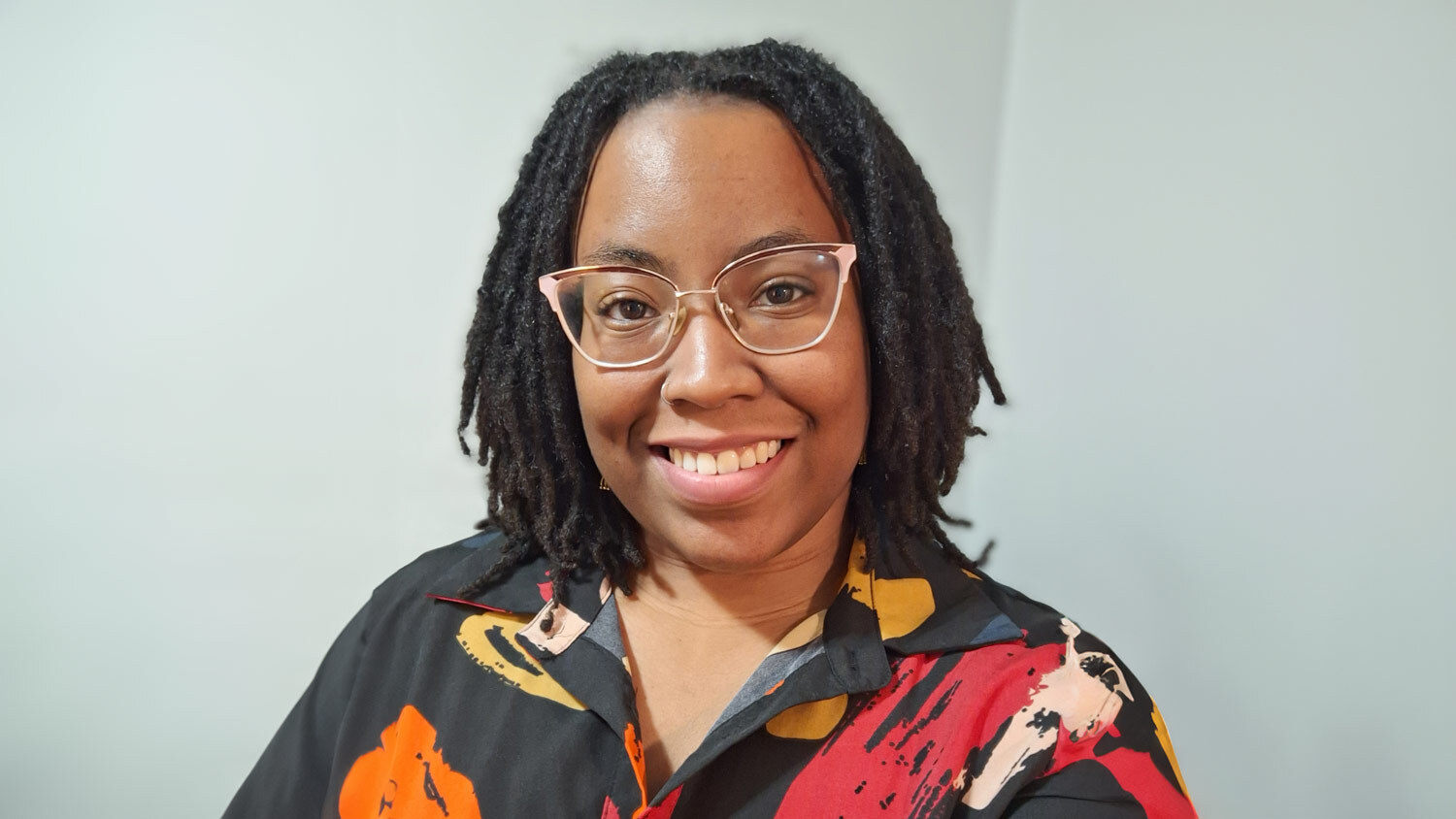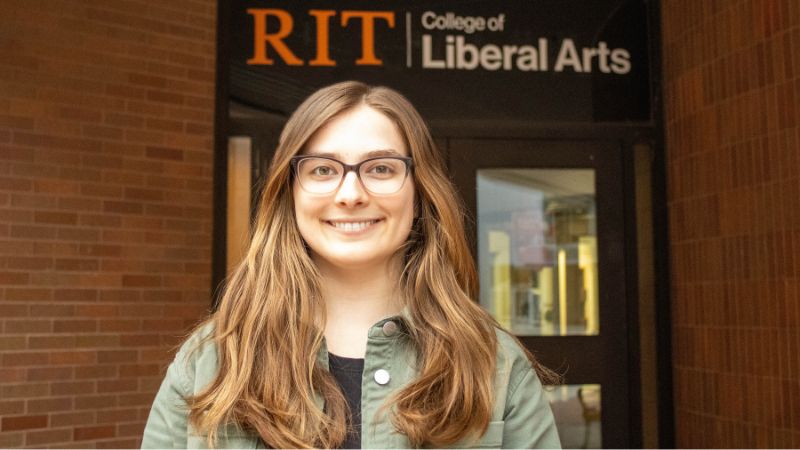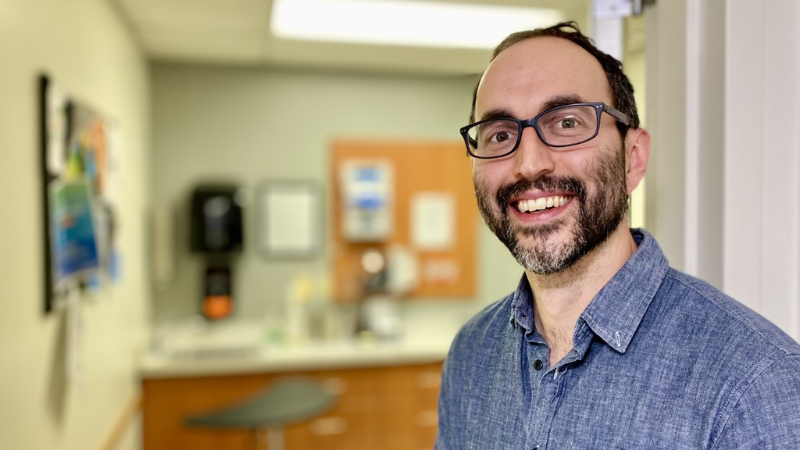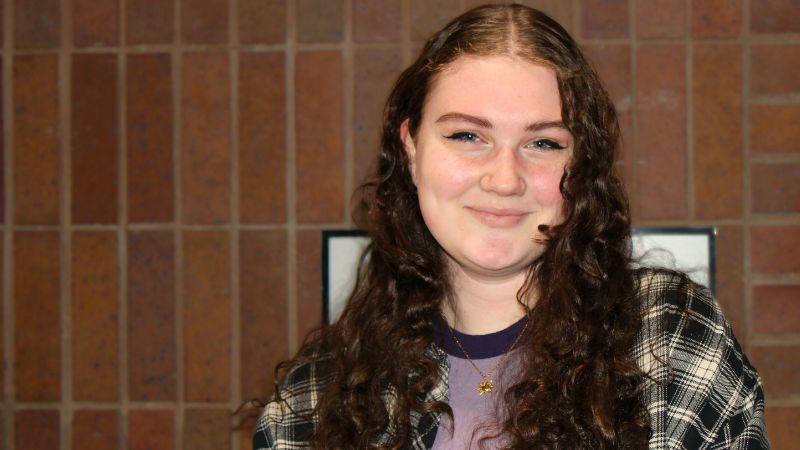Broad Range of Degrees Pave Student's Path to Success
From engineering to sociology, Ebony Eli's RIT journey shaped her into a program development specialist at a food bank, where she uses her interdisciplinary education to serve underserved communities.

Coming from a public magnet school in Michigan that was focused on career preparation, Ebony Eli was sure she wanted to be an electrical engineer. Due to her academic concentration in math and science, she leaned toward technical universities during her college search. RIT stood out to her, and the university’s study abroad program, scholarships, and experiential learning opportunities cemented her decision.
After completing several electrical engineering courses, Eli realized that she was no longer passionate about entering the engineering field. After taking several liberal arts classes and working with RIT’s career counselors, she uncovered a keen interest in the humanities.
“One of RIT's strengths is having a balance of STEM-heavy courses and humanities courses, which provided me with a unique perspective,” Eli said. “It then hit home to me that I’ve always strived to use my knowledge to better the lives of others.” This realization sent her down a path of pursuing a degree in sociology, with minors in communication and nutritional sciences.
As she became ingrained in the RIT culture, Eli was surprised at the level of support she received, including from professors that she remains connected to today. She credits the campus ministry group for helping her transition to her new life on campus. She was also paired with a mentor through the Multicultural Center for Academic Success, who helped her map out a path to career success. Eli’s participation in the “Momentum” training program helped her develop leadership skills and learn about creating change from a global perspective. “All of this support was helpful for me to create a family away from home,” she said. “It was important to me to find groups I was comfortable around, to be my authentic self. It helped me to develop a sense of self-confidence.”
Eli credits her broadened perspective to both her internships and her study abroad experience at RIT's Croatia campus. “The scholarship I received for studying in Croatia helped prepare me for my job and fulfill one of my life’s dreams,” she said. Eli participated in two internships. The first was at AmeriCorps NCCC (National Civilian Community Corps), where she worked on mold remediation in Texas, rebuilding a cultural center in Oklahoma, and developing programming for a mobile food bank in New Mexico. The second internship at Causewave Community Partners gave her experience working on a grassroots communication plan to provide education to residents of specific zip codes affected by lead poisoning.
Today, Eli is a program development specialist at Foodlink, a food bank in Rochester, NY. Her position is focused on improving operations for Foodlink’s curbside market, which sells fresh, affordable groceries to residents with limited access to nutritious food. Eli credits her education in sociology, communication, and nutritional science for giving her a head-start in her position. “The technical courses I took have been helpful for the work I’m doing to improve the point of sale for the mobile market,” she said. Eli also notes that a course she took in nutrition science provided new insights into the experiences of immigrants and refugees in America. “The knowledge I gained from this course inspires me to always strive to do better, push our work further, and take equity and trauma-informed approaches to community health work,” she said. Eli also developed a community health advocacy training program based on the skills she learned in her sociology courses. “When I design new programs,” she said, “I take my knowledge about how different groups such as the homeless, elderly, and refugees are uniquely affected by issues in the community. I strive for equity and try to impart this knowledge into the work I do.”
For students just beginning their RIT experience, Eli shares this advice: “Take advantage of as many opportunities as you can on campus, and also make sure to take opportunities outside of campus to see the rest of the world.”












